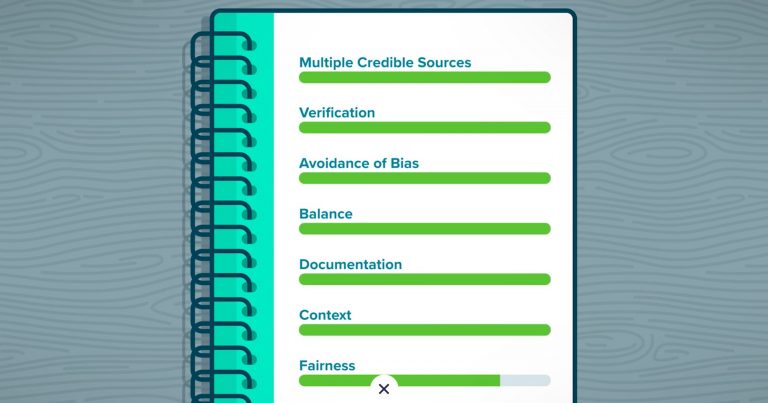Merely by reading a piece of news, you cannot claim yourself to be called as news literate. Reading news out of your comfort zone facilitates you to analyze and scrutinize the opinions from facts and assertions that the writer intends to portray.
Is it possible to be a news literate with distinction in this world? This is probably the most crucial question which pops up in every curious mind when we hear the term ‘News Literacy’. This era of the 21st century is the era of technological advancements where finding pirated or fallacious contents is no longer a whammy situation. In this scenario, news literacy is one of the pre-requisite factors for social development.
What is News Literacy and when can we claim ourselves to be news literate?
To pen down with simplicity, news literacy, is the ability to analyze and judge the credibility of a story raised before you. It could be from Politics, Sports, Cinema or any other domain which is out of your expertise. Even though it sounds simple, it is not so easy to call yourself as a news literate. News literacy hovers around differentiating facts, assertions, and opinions about a particular story (especially in the sensitive cases of #MeToo). Merely by reading a piece of news, you cannot claim yourself to be called as news literate. Reading news out of your comfort zone facilitates you to analyze and scrutinize the opinions from facts and assertions that the writer intends to portray. It enhances the tolerance level of the newsreader to present his point of view diligently. Moreover, an individual, who is literate in news possesses a better vision towards the society.
Characteristics which entitle a news report to be precise:
One thing for sure, journalism is not a cakewalk and needs a proper and meticulous execution. Here are the core three credentials of an accurate news report
Reliability: It is just that the information collaborated within the news outline is verified from all sources.
Context: In case, if particular news owes ancillary roots, it must be reflected in the present outline to create a clear picture of the news report. Unless and until the ancillary facts are associated with the current news, it becomes difficult for the reader to understand and assess it.
Balance: The news author/ reporter must present a balanced side to his report. He has to be communicably impartial while reporting about instances such as criminal prosecution or court proceedings. His writing skills need an unbiased execution. The facts that form a part of the news must have serious implications and the content reliability defined through verification, independence and reporting accountability.
Until now we have dealt with a lot of generalized information about news literacy, let us proceed ahead with the resources to become a news literate.
Resources for achieving news literacy
Few books are recommended for acquainting yourself with the basics of news literacy are as follows:
News Literacy: The Keys to combating fake news
This book written by Michelle Luhtala and Jacquelyn Whiting focuses more on the evolution of the concept of news literacy and how to tackle the falsified report. Furthermore, the book highlights the hurdles faced by the mass media students in acquiring critical researching skills to emerge as an influential journalist.
Critical Media Literacy and Fake News in Post Truth America
Written by Christian Goering, the book highlights how the fake news leads to a misleading campaign during the Presidential Elections in the year 2016.
Information Literacy and Fake News (Why does media literacy matter?)
In this era of social media, Diane Dakers, the book author presents a critical analysis of the crucial elements of journalism, its truth, and perspectives. The author here tries to educate the readers about how to identify accuracy level of news reports.
News Literacy: Helping students and teachers decode fake news
Co-authors Robert W. Janke, and Bruce S. Cooper, here want to illustrate how the fake news resembles a defense weapon for those who are anti-social. The motto behind coming up with this book is to make the readers aware about the destructive side of such fake news and its impact on social well-being.

These are some of the books intended towards inculcating a sense of liberty to judge a news report concerning its level of accuracy and precision. While, today we have Google at our fingertips, finding relevant information about fake news is no longer a hurdle for those with a journalism background. However, it is essential for the common man too to be a news literate as is the case with the journalist. Such books are thus the guiding soul for the beginners to acquaint themselves with the basics and stop falling prey to fake news and its wrath.
Further, Read More:
‘Our Cinema should adopt more tales of ordinary people from rural India,’ says Charan Singh Pathik
A horrible Indigo 6E 902 & others: This is how our airlines handle the mid-air emergency



